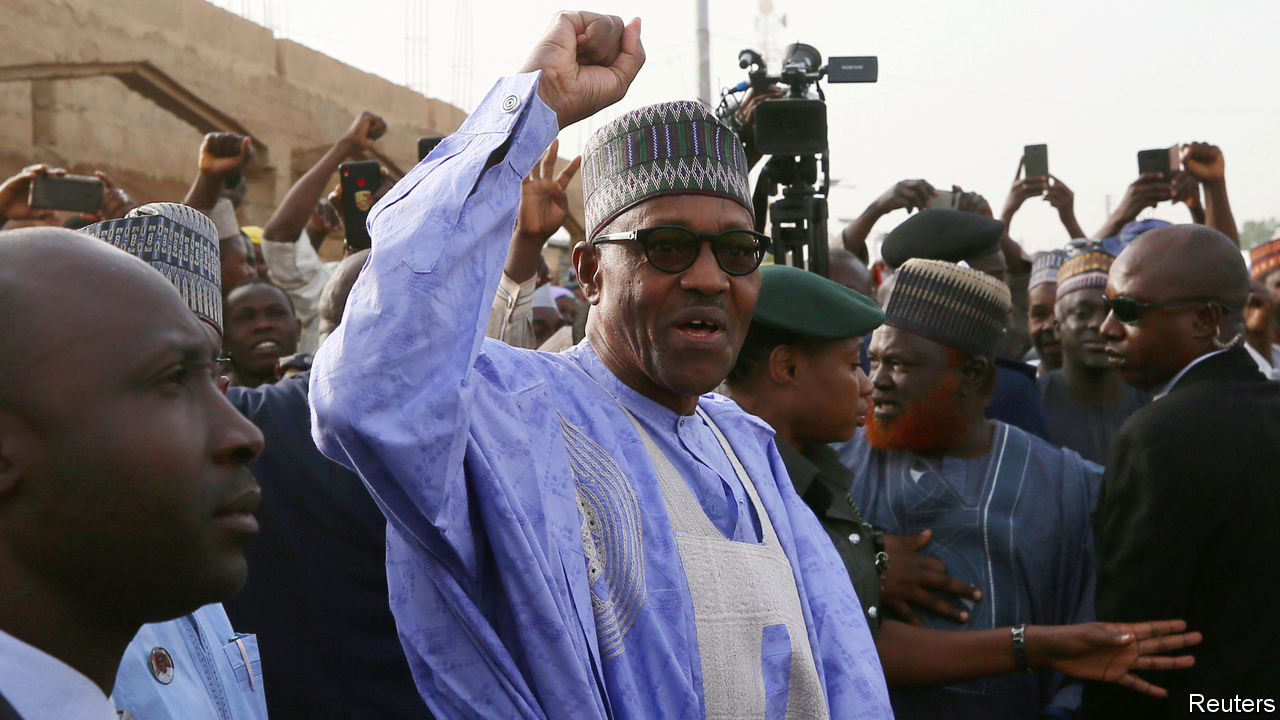NEWS
Breaking! INEC declares Buhari winner of the 2019 Presidential Election

Muhammadu Buhari was on Tuesday re-elected Nigeria’s president, after a delayed poll that angered voters and raised political temperatures, leading to claims of rigging and collusion.
President Buhari, 76, took an unassailable lead of more than four million votes with the last states yet to be declared, making it impossible for his nearest rival, Atiku Abubakar, to win.
The former military ruler was first elected as civilian president of Africa’s most populous nation and leading oil producer in 2015.
Supporters of Buhari’s All Progressives Congress (APC) had gathered to celebrate at his campaign headquarters in the capital, Abuja, even before the final results were announced.
Some sang “We’re popping champagne!” while Vice-President Yemi Osinbajo was seen in a video clip singing “Up we go!” in a reference to Buhari and his “Next Level” campaign slogan.
Buhari’s spokesman, Garba Shehu, posted a photograph of the president on Twitter, watching the results on television. “#BuhariHasWon,” he wrote.
ut there were none of the spontaneous street parties that marked his victory four years ago, when he became Nigeria’s first opposition candidate to beat an incumbent president.
To win the presidency, a candidate needs a majority of votes nationwide and at least 25 percent of support in two-thirds of the 36 states and the Federal Capital Territory (FCT).
Initial results showed Buhari won 15,191,847 votes (56 percent) while Abubakar, of the Peoples Democratic Party (PDP) won 11,262,978 votes (41 percent).
Buhari won in 19 states — including the two most populous, Lagos and Kano — while Abubakar was victorious in 17 states and the FCT.
There was no immediate official concession from Abubakar, whose party had earlier called on the Independent National Electoral Commission to halt the count, citing irregularities.
Legal challenge?
In 2015, president Goodluck Jonathan won plaudits for conceding to Buhari in a phone call, when the results indicated he could not win.
The concession is acknowledged as having prevented a repeat of the political violence that has marked previous elections in Nigeria, in which hundreds of people have been killed.
This year’s election — the sixth in the 20 years since the return of civilian rule after decades of military government — was initially scheduled for February 16.
But INEC postponed them for one week just hours before polls were due to open, citing logistical difficulties in delivering ballot boxes and other election materials.
Voting took place on Saturday after a week in which the APC and PDP intensified their war of words, accusing the other of conspiring with INEC to rig the result.



